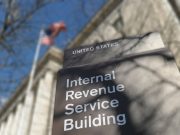The Commissioner of the Internal Revenue Service, John Koskinen, was recently quoted as stating that under “the framework Congress has set up,” § 501(c)(4) organizations are permitted to “spend a significant amount on politics”—up to 49% of their budgets. This unremarkable assertion reflects the general understanding of tax lawyers and nonprofit organizations. Nevertheless, a predictable group of campaign finance reform advocates wrote Mr. Koskinen a sharply-worded letter decrying his supposed misrepresentation of the law.
But as one might expect, the Commissioner was correct. The reformers’ letter relies upon a cramped misreading of the Internal Revenue Code and misleading case law. Accordingly, CCP has responded with a letter of its own, which is available here. That letter makes three arguments.
First, it points out that Congress knows how to prohibit political activity when it wishes to do so. It did so explicitly for Section 501(c)(3) groups—charities and educational groups, including the Center—but not for 501(c)(4) social welfare groups. This in itself is telling and fatal to the reformers’ argument.
Moreover, as the Center observed in its letter, there is no reason to suppose that “social welfare” cannot include political engagement:
The artificial separation of political advocacy and advocacy in favor of social welfare, suggested by the Letter, posits a cynical view of representative democracy that finds no support in our laws or traditions. The very preamble to the Constitution states, in part, that “We the People of the United States, in Order to … promote the general Welfare… do ordain and establish this Constitution for the United States of America.” U.S. Const. preamble. Congress has provided a range of organizational means for citizens to organize, lobby, and advocate for candidates who take positions supported by organizations. All of these activities improve the general welfare of the nation. Section 501(c) reflects this belief.
Second, the structure of the Internal Revenue Code demands that § 501(c)(4) groups be permitted (as IRS regulations have long recognized) to engage in political activity provided it does not become their primary purpose. This is because § 501(c)(3) groups are explicitly prohibited from intervening in elections, while § 527 groups must have political activity as their primary activity. Neither type of organization is itself taxed, although contributions to § 527 organizations (like those to § 501(c)(4) groups) are not tax-deductible. Under the reformers’ view, a group that spends all of its money on politics would be tax exempt, but a group spending some amount less than 50% of its funds in the same manner would be treated as a taxable corporation. That absurd result could not have been intended by Congress, and the IRS has sensibly read the statute otherwise.
Finally, while the reform groups cite a number of court decisions, not a single one contradicts the Commissioner’s correct statement of the law. Their sole citation to the Supreme Court comes from 1945, well before the present statutory framework was adopted. That case dealt not with a social-welfare group, but with a scientific and educational nonprofit—what we would now consider a § 501(c)(3), not (c)(4), group. Since, of course, § 501(c)(3) organizations are prohibited from political advocacy by the express terms of the statute, the case is grossly mischaracterized.
To bolster this remarkably unhelpful citation, the reformers note a number of cases from the Courts of Appeals, the youngest of which is over 25 years old, and none of which dealt with the political activity of a § 501(c)(4) organization. All involved (c)(4) groups that were declared taxable entities because they were using their resources for the private profit of their members, generally by selling insurance.
Fundamentally, the reformers’ letter, and its thin veneer of legal reasoning, betrays their actual mission: a radical redefinition of § 501(c)(4) status. But changing a statute is the business not of the IRS, but of Congress, to which their arguments should be directed.
We hope that Commissioner Koskinen will continue to forthrightly and accurately represent § 501(c)(4) in his public statements.














